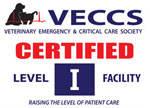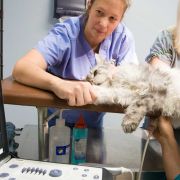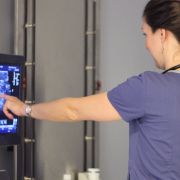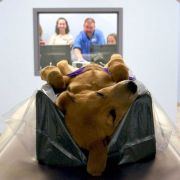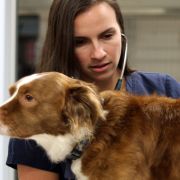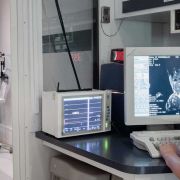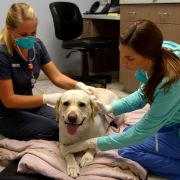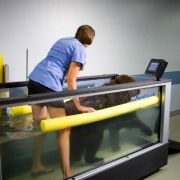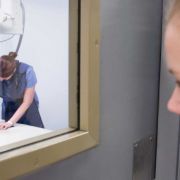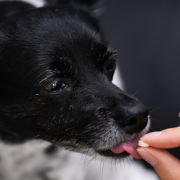Beginning April 2021, after a long-term partnership with local Charleston area wildlife rehabilitation and rescue groups, Charleston Veterinary Referral Center (CVRC) will no longer be able to accept any uninjured or non-critical wildlife (including newborns), or act as a drop site for other organizations. Due to the volume of wildlife, potential staff risks, and the increase in dog and cat medical caseloads, we must prioritize care of our sick and injured hospitalized pets.
However, we will continue to facilitate the transfer of wildlife with significant injury or in critical condition to an appropriate rehabilitator, and to offer humane euthanasia when appropriate.
We will no longer accept raccoons for transfer, care, euthanasia, or rabies testing due to the challenges listed above, and the level of risk to our staff.
Injured/Abandoned Wildlife
Throughout the year, it is common to find wildlife in your yard. In our area, we typically encounter birds, rabbits/baby bunnies, raccoons, squirrels, deer/fawns, opossums, groundhogs, chipmunks, fox, ducks, geese, gulls, turtles, and bats. Between March and October, there is generally an increase in baby wildlife – some injured and some thought to be abandoned.
While your initial reaction may be to intervene and help an injured animal, please take a moment to consider your safety. Animals that are hurt, stressed, or afraid may become defensive or aggressive. In addition, wild animals can be carriers of zoonotic diseases, meaning they can be transmitted to humans. These types of diseases include rabies. Great care should be taken to protect you and your family members from getting bitten, scratched, or otherwise injured.
Helping Injured or Abandoned Wildlife
Should you find injured or abandoned wildlife, please follow these steps:
- Protect Yourself: Leave the animal alone until you receive instructions from a professional.
- Rabies Carriers – Contact your local police department: Animal control officers should be available to help with sick or injured rabies carriers or potentially dangerous species (adult deer, herons, etc.).
- Other Species (Non-Rabies Carriers) – Contact a local licensed wildlife rehabilitator if non-rabies carrying wildlife is encountered that may need help. The goal of wildlife rehabilitation is to provide professional care to sick, injured, and orphaned wild animals so they can be returned to their natural habitat. Wildlife rehabilitators work with veterinarians to assess injuries and diagnose a variety of illnesses. Because of their training, wildlife rehabilitators can help determine whether an animal truly needs help.
To locate a South Carolina wildlife rehabilitator or organization that helps wildlife in our area, please visit:
https://www.dnr.sc.gov/wildlife/rehab/
The following flowcharts can help you determine whether the baby animal you’ve found needs help:
Baby Bird
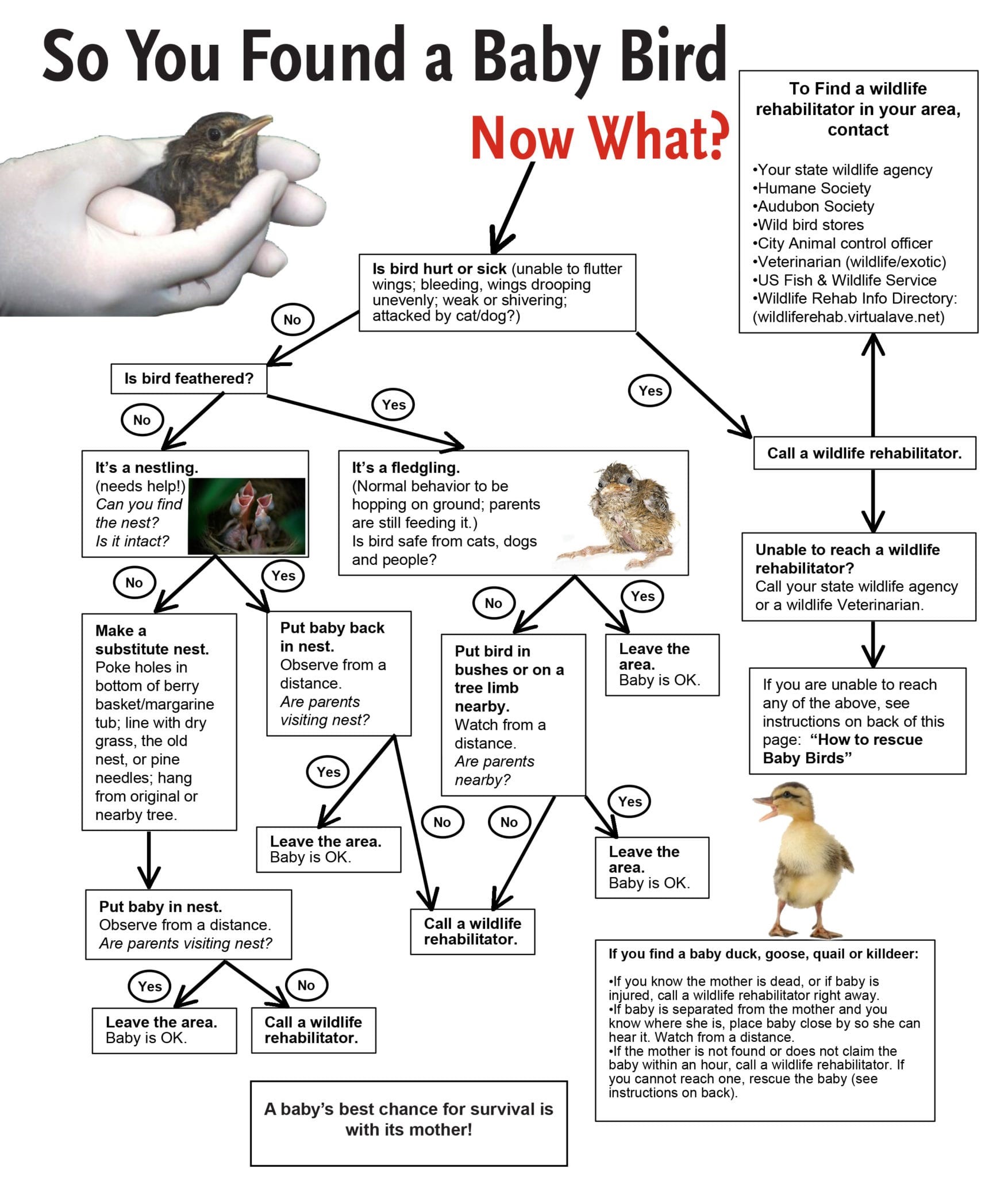
Baby Bunny
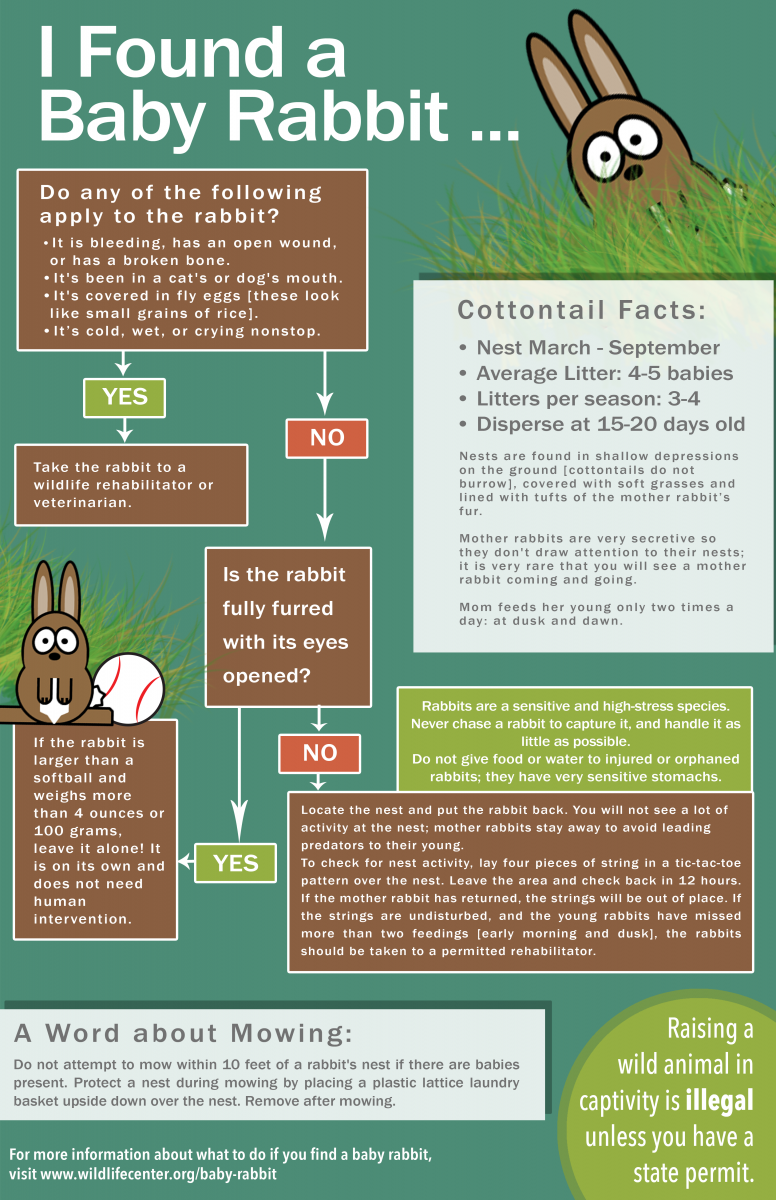
Baby Deer
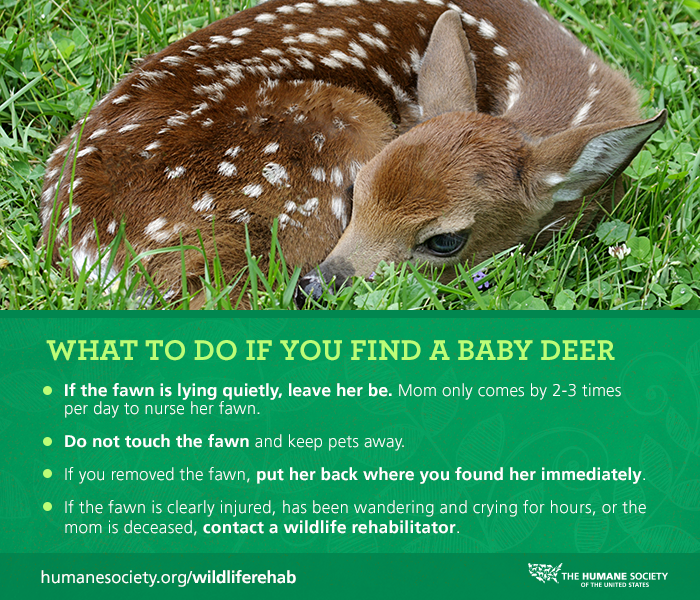
Baby Squirrel
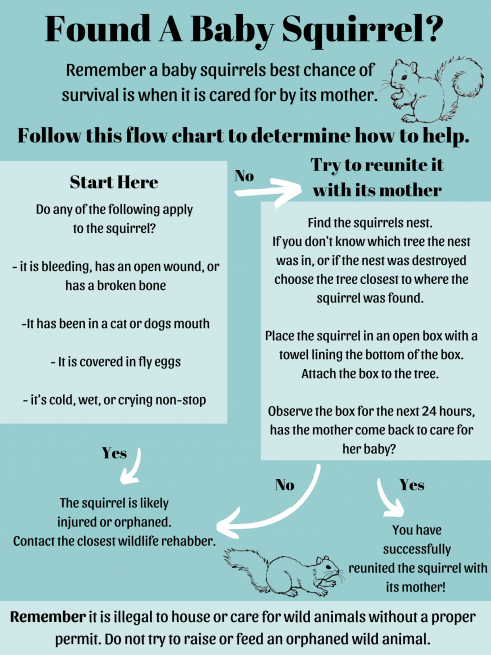
Baby Opossum
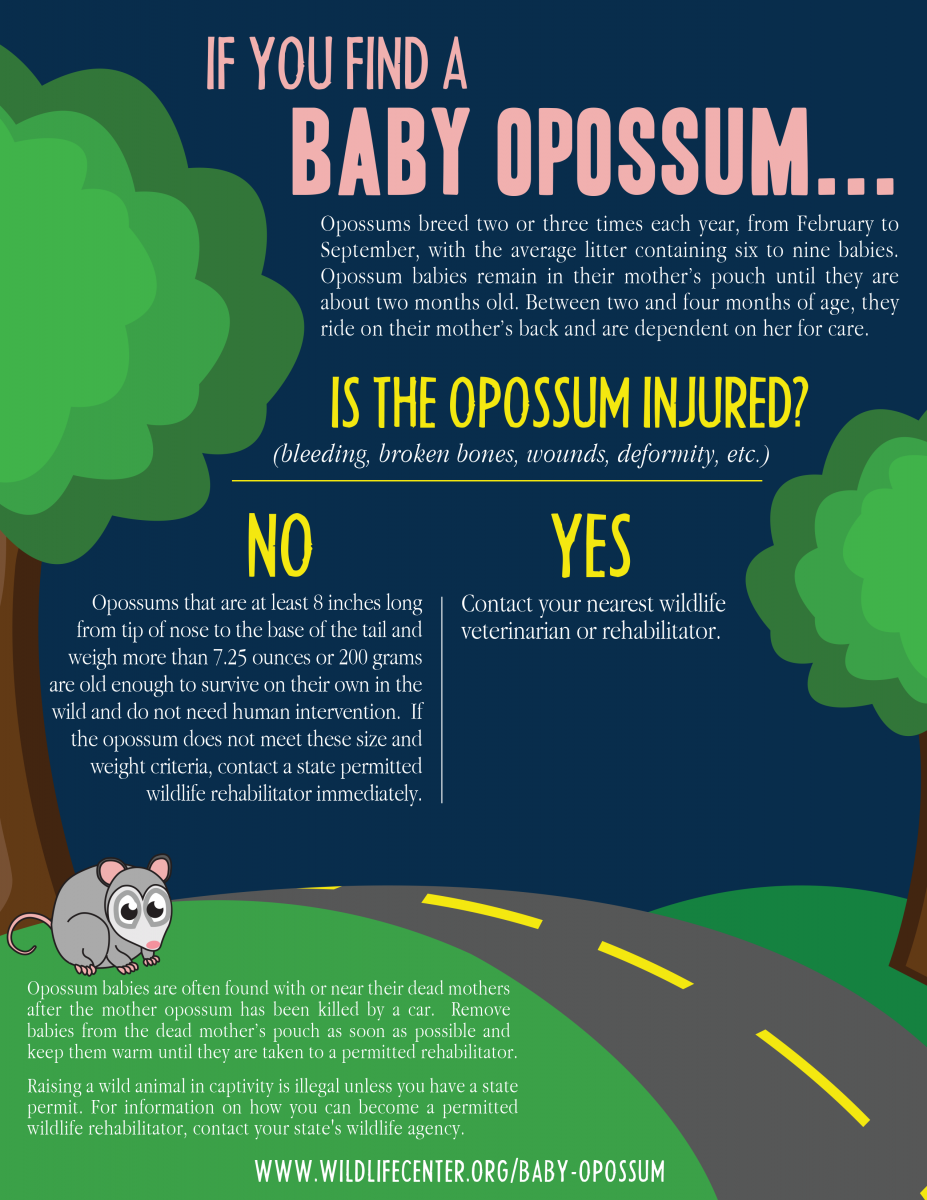
Please Note: It is illegal to be in possession of wildlife without proper state and/or federal permits. Exceptions exist that allow Good Samaritans to intervene and transport injured or abandoned wildlife to a veterinarian or licensed rehabilitator. Baby wildlife is adorable but they do not make good pets. Please consider what is in the best interest of the animal. Attempting to rehabilitate wildlife without a license and proper training may cause serious harm to the animal and prevent its release back into the wild.
Rabies
Rabies is a virus that infects cells in the central nervous system that causes disease in the brain and results in death. It is transmitted when saliva from an infected mammal (human or animal) is introduced into another human or animal. Exposure can occur through a bite, scratch or contact with saliva to broken skin or mucous membranes such as the eyes or mouth.
- Rabies Facts: https://scdhec.gov/sites/default/files/Library/CR-011897.pdf
- All About Rabies: https://scdhec.gov/sites/default/files/Library/CR-011896.pdf
- Rabies in South Carolina: https://scdhec.gov/sites/default/files/Library/CR-011895.pdf
- Rabies & Bats in South Carolina: https://scdhec.gov/sites/default/files/Library/CR-011894.pdf
Wildlife Carriers of Rabies
- Bats
- Foxes
- Groundhogs
- Raccoons
- Skunks



